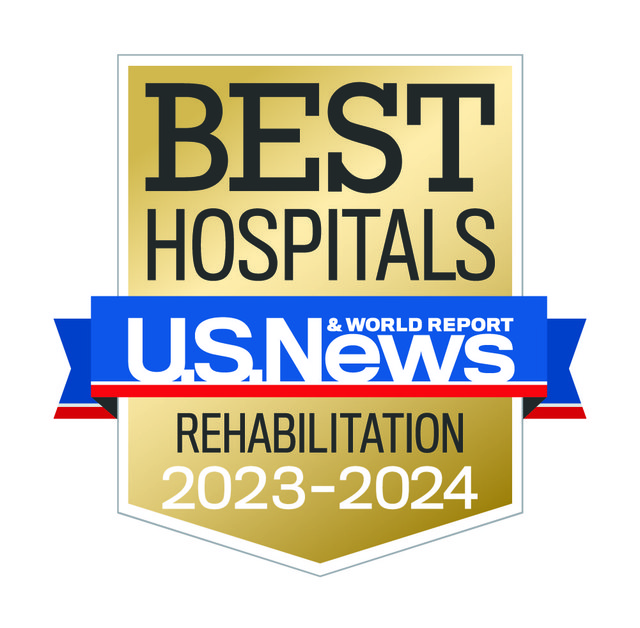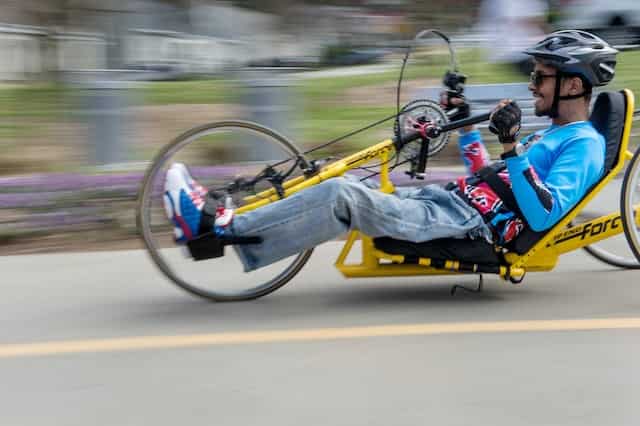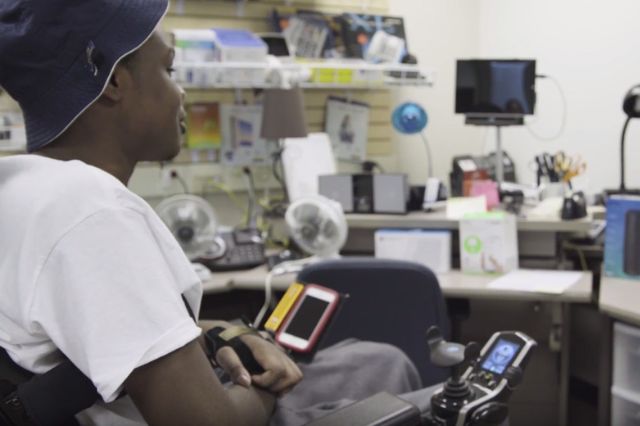Disorders of Consciousness Program
Shepherd Center’s Brain Injury Program for DoC Treatment
Shepherd Center’s Disorders of Consciousness (DoC) Program, which began in 2000, is one of only a few dedicated programs nationwide. It provides specialized services and an interdisciplinary approach to care for people in low-level states of consciousness caused by brain injury. Because individuals with a disorder of consciousness have different needs than those undergoing traditional rehabilitation, these patients benefit from a specialized, individualized DoC treatment plan designed to meet their unique requirements. Because of the intensive nature of treatment in this program and due to inpatient capacity at Shepherd Center, we admit a limited number of patients with disorders of consciousness.
What Is a Disorder of Consciousness (DoC)?
Consciousness is defined as wakefulness or alertness with awareness of one’s self and the environment. Severe brain injuries can often result in a disorder of consciousness (DoC), which causes reduced arousal and abnormal and/or limited reactions to stimulation from the environment.

About Our DoC Treatment Program
Patients who are in a reduced or minimally conscious state following a traumatic or non-traumatic brain injury are often not ready to begin an active rehabilitation program. For these patients, Shepherd Center's four-to-six-week Disorders of Consciousness Program provides pre-rehabilitation and education services to accommodate our patients’ needs for rest and structure.
Goals of the DoC Program include:
- Medical stabilization
- Management of health needs (e.g., nutrition, neuropharmacology)
- Facilitation optimal positioning/seating/mobility
- Identification of environmental modifications to facilitate arousal, communication, and cognitive recovery (e.g., minimally conscious stimulation program)
- Family/caregiver support, education, and training
Interdisciplinary Team for Disorders of Consciousness
Upon admission to Shepherd Center, each patient is assigned to a rehabilitation team, which offers consistent care throughout their inpatient rehabilitation stay.
Each team is composed of the following:
- Physical medicine and rehabilitation physician
- Case manager
- Nurse
- Patient care technician
- Dietician
- Physical therapist
- Occupational therapist
- Speech-language pathologist
- Neuropsychologist
- Family counselor
- Chaplain
Assessment for DoC Treatment
Given the nature of severe brain injury, every patient with a disorder of consciousness is different. Therefore, comprehensive assessments of medical status, mobility, tone, arousal communication and cognitive functioning are completed upon admission to develop individualized plans of care.
Throughout a patient’s stay, Shepherd Center’s specially trained staff members administer the Coma Recovery Scale-Revised (CRS-R) assessment on a weekly basis to track improvements with arousal, responsiveness to environmental stimulation and communication. These factors ultimately determine the emergence into a fully conscious state.
DoC Treatment
The DoC Program’s dedicated interdisciplinary team uses assessment findings to develop an individualized treatment plan that balances medication management, behavioral therapy, technology, environmental stimulation, and rest.
Care plans may include:
- Casting/splinting for tone management
- Functional electrical stimulation (FES) cycles
- Animal-assisted therapy
- Wheelchair seating clinic consultations
- Augmentative/alternative communication (AAC) technologies
Family-Centered Care for Disorders of Consciousness
Family and caregiver education is critical to a patient’s recovery during and after the Disorders of Consciousness Program. At Shepherd Center, we make sure you feel involved in your loved one’s care, ask for your recovery goals and expectations, and encourage you to ask questions along the way.
During your stay, the program will provide many opportunities for education, support and training to help you feel comfortable in caring for your loved one at any level of function. These opportunities include, but are not limited to:
- New family orientation
- Brain injury lectures
- Family support groups
- Peer support meetings
- Monthly family events/offerings
- Hands-on training with all disciplines
- Outings in the community
- Dependent passenger evaluation
DoC Discharge Planning and Support
Toward the end of the patient’s stay, the case manager, along with other members of the DoC treatment team, will help you determine the best options moving forward. These may include:
- Progressing to a rehabilitation level of care
- Discharging home with supportive services, in which case, you may be assigned a Transition Support Coordinator who will be available to you for 60 days after discharge to answer questions and provide support during the transition from hospital to home
- Discharging to a facility that will care for the patient
Disorders of Consciousness Program Resources
Visit MyShepherdConnection.org to learn more about disorders of consciousness and access educational materials for patients, families and caregivers. Explore our additional resources for more information:




